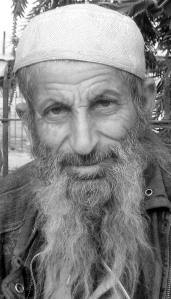Introduction
The ethnic origin of the Afghans (also Pushtun; Pukhtun or Pathan) has always puzzled ordinary people, scholars and historians alike, but not the Pathans or Afghans themselves. They are different both externally and in their character traits and traditions from other groups around them, such as the Turks, the Mongols, the Chinese, or the Indo-Aryans. The word Pathan is a Pashto derivative of the original word Pithon, the great grandson of King Saul.- [http://wakeupproject.com/forum/viewtopic.php?f=50&t=2303&start=0&st=0&sk=t&sd=a&sid=96c3e24fc3c3e6328dbc1531542ef7ad]
- [10. Chronicles I, 8:35, Book of Samuel, Hebrew Bible and Old Testament.]
- ["Lost Tribes from Assyria" by A Avihail and A Brin, 1978]

It is also difficult to trace their past history in a region that has seen the passage of numerous nations and peoples throughout history and which has always been a focal point in history’s great conflicts. That is why; definitive clues to their true origins can be traced from the old customs and traditions or oral history that has been handed down from generation to generation. This is not surprising, since the transmission of such oral traditions and familial heritage has always stood the test of time in a region that has always been marred by war and constant change, where borders and kingdoms change every few years or so.
The Pashtuns or Pukhtuns have been living in the Afghanistan area for more than 2,000 years. Their language Pashtu/Pukhto borrows widely from the Arabized Persian of their neighbors (now Iran), yet it was a purely spoken dialect. There was no formal Pukhto/Pushto written script, the first Pushto book appearing about the 1500s. Hence the traditions, customs, tribal genealogy and law orally transferred from father to son. The first book on Pashtun genealogy, the Makhzan-al-Afghani was written in 1613, and contained for the first time a printed table of descent from Abraham to the Pashtun tribes.
- [http://wakeupproject.com/forum/viewtopic.php?f=50&t=2303&start=0&st=0&sk=t&sd=a&sid=96c3e24fc3c3e6328dbc1531542ef7ad]
- [Ferishta, History Of The Mohammedan Power In India, The Packard Humanities Institute Persian Texts in Translation]
- [Lost Tribes from Assyria" by A Avihail and A Brin, 1978]
- [The Indian Jewry & The Self-Professed 'Lost Tribes of Israel' by Navras Jaat Aafreedi in collaboration with Professor Tudor Parfitt, director of the Centre of Jewish Studies, London University and Dr Yulia Egorova.]
No comments:
Post a Comment